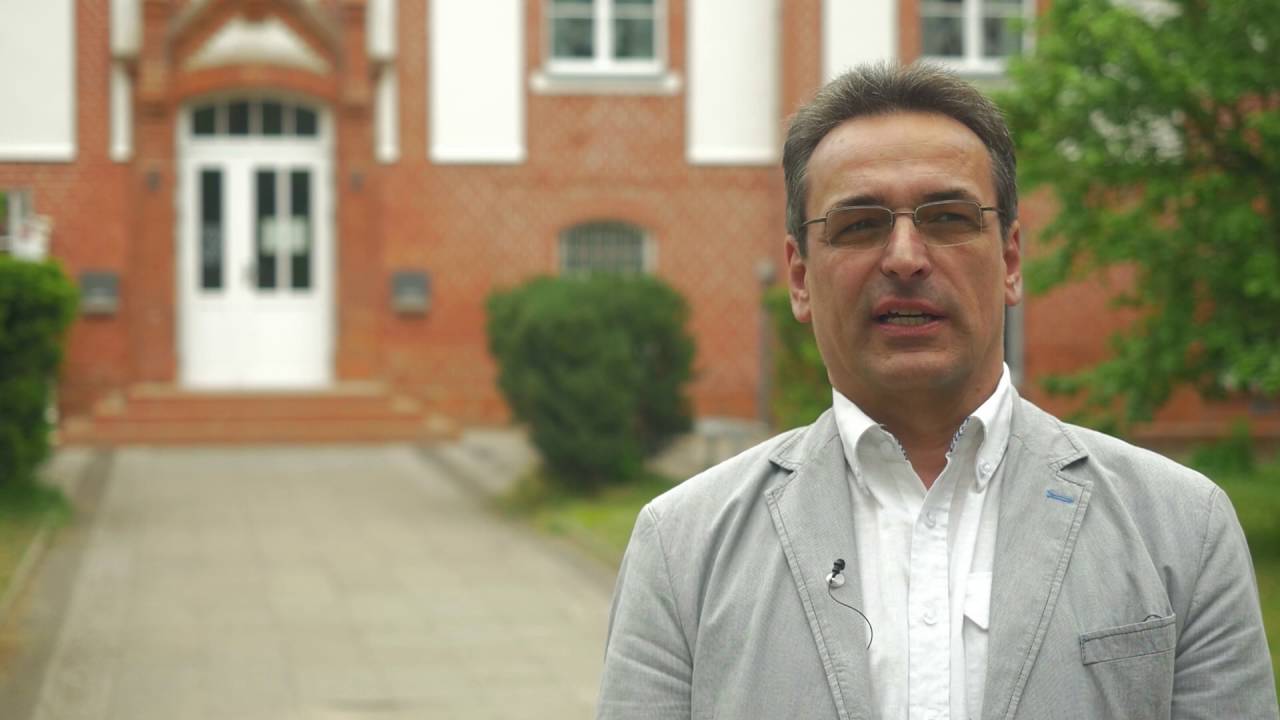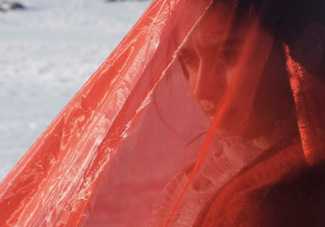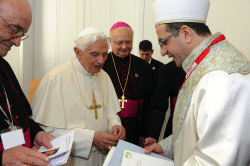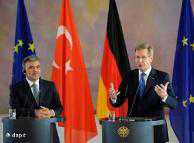Recep Tayyip Erdogan is scheduled for a 2-day visit in Germany, where he will also meet Angela Merkel to discuss the civil war in Syria.
By DPA | Oct.30, 2012 | 10:51 AM | 1
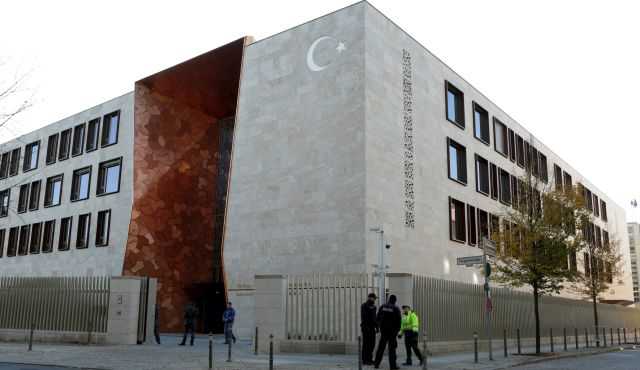
The new Turkish embassy in Berlin – AP – October 29, 2012.
Exterior view of the new Turkish embassy in Berlin, Germany, October 29, 2012. Photo by AP
Prime Minister Recep Tayyip Erdogan was to inaugurate a new Turkish embassy in Berlin on Tuesday, with the grandiose building underlining his nation’s ambition to become a member of the European Union.
The mission, Turkey’s largest abroad, has been erected in the German capital’s upscale Tiergarten embassy district, on the site where a Turkish embassy stood until Allied bombardment late in World War II left much of the city in rubble.
The 30-million-euro (39-million-dollar) building, entered through a 16-metre-high copper-lined archway, is located between the missions of South Africa and Italy.
Erdogan was to wrap up his visit to Berlin on Wednesday, when he meets Chancellor Angela Merkel to discuss the conflict in Syria. More than 100,000 Syrians have sought refuge in Turkey.
Some 2.5 million people living in Germany have ethnic Turkish roots. The two nations have close trade ties.
The embassy building is divided into two parts: the so-called “palace,” which contains reception areas and the ambassador’s office; and the “city,” which contains office space for 100 staff.
Between them is an atrium named after the Bosporus, the waterway separating the European and Asian parts of Turkey.
Thomas Hillig, one of the three architects, said the modern lines and grandeur of the building were an expression of Turkey’s desire to join the European Union, adding, “Turkey wants to show itself as a modern, open nation.”
Turkish ornamentation on the building includes the national logo and more subtle features such as a traditional Islamic pattern known as girih interlacing, which is engraved on the window glass.
“It’s meant to look Turkish and not be just a faceless block,” Hillig said.
Tiergarten was picked as the city’s embassy neighborhood under the Nazis, when the architect Albert Speer was commissioned to remake the city and the Axis allies Italy and Japan built their embassies there.
via Turkey’s Berlin embassy moves back into its WWII home – Israel News | Haaretz Daily Newspaper.

